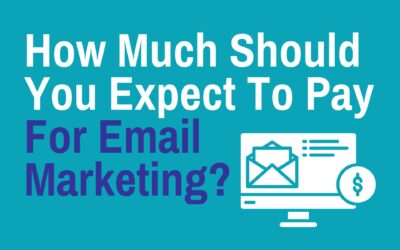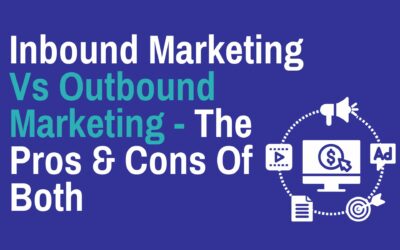Building a new website in 2020? Or just sick of your existing website content letting you down?
As a website content writer I see a LOT of websites.
You know your website needs to look good, run smoothly and deliver your prospects a slick, engaging and enjoyable experience.
You’ve probably spent thousands on your website build. And quite rightly so, after all it’s the cornerstone of all your marketing.
But there’s a really big fricking gap in your strategy.
It needs to convert too.
And what turns prospects into customers?
Words.
When it really comes down to it your message is the most important part of any marketing campaign.
Most business owners don’t ever invest in a really great web content writer and web design companies don’t usually include one in your build, leaving you to fudge some content together yourself.
And well, let’s face it, you’re probably not that good at writing for the web.
Sure you might be able to string a few words together, but can you craft persuasive copy that peaks interest, builds trust, overcomes objections and inspires action? Unless you’re an undercover website content writer then probably not.
You can have the most beautiful/unique/functional website, but if it doesn’t deliver a powerful message then it just won’t work.
You’ll miss out on leads and make fewer sales.
As a website content writer, I’ve spent the last 7 years learning, practicing and perfecting my content writing services for websites.
I discovered that when you’re writing for the web there are some key things you need to know.
In this blog post I’m going to share them with you, in what I hope is a simple, enjoyable and understandable way.
So if you fancy having a go at being your very own website content writer, or if you just want to find out if your website content ticks all the boxes, then grab a pen, start reading and take copious amounts of notes.
There be gold in these here pages…
1: The Vomit Draft
My Aunt is a stunt actress. She’s spent the last 30 years of her life throwing herself downstairs, crashing cars and jumping out of aeroplanes (yes, that was her bottom that landed in the pig sty in Bridget Jones).
She recently told me that she’s writing a book about her career. She’s never written a book before so she asked her published author friend for some advice on how to get started. He told her to write a “Vomit Draft”.
The vomit draft is where you get it all out onto paper. All the info, all the ideas and all the content. Just everything. Then the idea is that you edit and tweak, cut and rewrite until you have a nicely polished final draft.
Most business owners who write content for their own websites never get past the vomit draft. They get all the information that’s in their heads out on paper, then publish that on their website.
It just doesn’t work. It’s messy and long and packed full of blurb that doesn’t give value.
A good website content writer knows that less is more and structure is everything. If you overwhelm your prospect with too much information or blurt it all out in a word-vomity kind of way then you’ll turn people off and send them straight into the open arms of your competitors.
So edit and edit well. Cut out the fluff and polish your content until it’s clear, clever and consistently delivering a compelling message that inspires action.
2: #Yawn
I know I’m a Millennial, but even if you’re not, I’m sure you’ll agree that there’s nothing worse than boring website content.
You might think your only job as “website content writer” is to deliver information, but it’s not.
Your job is to craft strategic and clever content that catches your prospects attention, overcomes their objections and gives them just enough information and a kick up the arse to get in touch.
Oh, and did I mention that you need to entertain them too?
Thanks to social media and the internet people are trained to want entertainment and quick wins. They’ve very little patience and even less time.
Even if they’re interested in what you do, even if they’ve been searching for you, if your content is long, fluffy or just fucking boring then they won’t read it. They’ll bounce off your page straight into… you guessed it… the open arms of your competitors.
So how does a web copywriter make your website content NOT boring?
We tell stories, we ask questions, we leave open loops, we make jokes and we spend literally hours and hours and hours crafting the perfect content.
3: Hope Is Not A Strategy
I’ve met many business owners who are excellent creative writers. They can tell tales and write really great stories.
But they’re missing the strategy.
Website copywriting isn’t really writing. It’s selling.
You can be the best creative writer in the world but if you don’t know how to sell and you’ve no website content strategy then you’re in for a rough ride.
When you’re writing for the web your job is to take your sales pitch and convert it into a written format that works.
To do that you need a solid strategy.
You need to know where your prospect is when they start reading, where they need to go next and every step or objection that needs to be taken or overcome before they’ll be ready to take the leap and get in touch.
Without a strategy, you’ve just got words. Words that might work, or might not.
As the great American Football player and coach, Vince Lombardi, said: “Hope is not a strategy”.
And it’s certainly not one I’d plan to build a business on!
4: Follow The Yellow Brick Road
People are lazy.
I don’t mean that in a negative way, more just as an acknowledgement that if you want your website visitors to do something, you need to make it very clear and very simple to do.
Kind of like in The Wizard of Oz.
When Dorothy landed in Oz she was given one clear objective and one clear path to follow. She needed to see the Wizard and to do that she just had to follow the yellow brick road.
Simple.
She wasn’t given four options of different people to see. She wasn’t left to find her own way or make her own path. Sure, she met some people and had some adventures along the way, but her end destination never changed and the yellow brick road made it simple to get there.
When people land on your site, your website content needs to tell them clearly and concisely what they need to do and where they need to go next.
You need to pave a yellow brick road for them.
A good web content writer will take them on a journey, through the pages and content that’s necessary, before delivering them at one very simple, single end destination.
Sure, they may make a few diversions along the way, visit some different pages, check out a few blog posts, but all roads lead to the same place in the end. They all lead back to the yellow brick road.
5: Are You Smarter Than A 10 Year Old?
When you’re writing for the web it can be easy to slip into that awkward, hyper-professional “business speak”.
Sure, you need to appear professional, but jargon and formal language is not the way to do it.
As a website copywriter one of the first things you learn to do is dumb it down. Make it easy for your reader to take in and understand what you’re saying.
Use real words that you’d say in real life. Write in the style and tone that suits your unique personality, your brand and your target market.
Unless you hang out in the higher echelons of society, this is probably going to mean that you use natural, informal and conversational language.
So if you’re using real words, a relaxed tone and… dare I say it… humour! How do you give that professional image that’s oh so important?
That comes from the knowledge you share, your branding and your uber-smart website design.
And your spelling.
Be absolutely sure to proofread everything and check for those sneaky typos! Nothing screams amateur louder than a spelling mistake.
If you want to learn more about how to get the tone right in your website content then check out my blog post here…
6: SEO Web Copywriting – Don’t Write For Robots
Long gone are the days when stuffing as many keywords into your website content would land you on the first page of Google.
These days there’s a lot more to SEO web copywriting than writing “Mortgage advisor in Birmingham” as many times as you can in a paragraph.
While a small part of me yearns for the old days of Yellow Pages and simple SEO, the web copywriter inside of me is secretly glad.
You see, as it stands today, Google loves quality content. Content that engages visitors, answers their search queries and makes them happy.
And as a website copywriter good content is something I can definitely do.
SEO in 2020 is about so much more than words. It’s about engagement, usability and linking too.
So don’t write for the robots. Write for people and the robots will love you.
That said, you do need to make sure your keywords are in there somewhere. Around 3-6 times on a page will do. If you can get them in your headline that’s a mega bonus too.
7: Length or Girth?
How much content should your website have? Too much and you can overwhelm your prospects, too little and you risk shooting yourself in the foot with the search engines.
You need to have just the right amount.
But what does that mean in practice?
Well, this is one of those questions that you’ll find a lot of different answers for. One expert says one thing, another says something different.
My best answer is that the ideal word count is enough to get your message across in the most concise way while ensuring you’ve enough content to keep Google happy. Oh and you can plus or minus the perfect word count a bit depending on your industry and target market.
Kinda vague isn’t it? That’s where experience as a website copywriter comes in.
But I appreciate that’s not much help for you, so from my experience SEO copywriting, I’ve tried to quantify this for you into something more tangible.
As a (very) rough ballpark figure you want to aim for between 600-800 words on your average web page. Less than 300 and you’re playing a dangerous game, more than 1000-1200 and you’d better be a skilled writer or you’ll be sending your prospects to sleep.
8: Break It Down Now Y’all
I know what you’re thinking… That’s still a lot of words to take in.
This is where subheadings become your very best friend.
Break your text up. Separate your page into sections if you can and break up large chunks of text with subheadings.
This does two things: it makes it easier and more enjoyable to read and it gives the skim readers in your audience something to scan before they decide if you’re worth their time.
No one wants to read an essay but you do need enough website content on your page to deliver your message, inspire action and tell the search engines what you’re all about.
9: Are You Drunk?
And finally, your website content has to make sense.
When you’re trying to be your own website copywriter it is so easy to cram too much in, miss essential bits out or just assume people know what you’re talking about.
Not everyone is a naturally skilled writer. And not everyone can sell.
Creating persuasive and powerful content for your website requires both of these skills. If you don’t have them you can end up in a mess.
I’ve seen business owners who have spent thousands on a website build, desperate to get more clients and grow their business, only to screw it all up with crap content that doesn’t make sense, has no flow and doesn’t sell.
As part of our service, we offer a Free Website Content Review where we check out your current website content and tell you where it needs to be improved.
We’ve seen some pretty tragic sites. In some cases, it’s so disjointed and confusing that it looks like they wrote it when they were drunk!
The dangerous thing here is that it makes sense to them.
So how can you avoid this happening to you? Well, you could hire a web content writer like us, but I would say that wouldn’t I? Or, if you’re going to write your own be sure to give it to someone else to test out.
Aim for someone who knows nothing about your business, if they’re your target market too that’s even better.
Ask them to read it and then get them to feed back to you what you’ve written but in their own words. Quiz them on certain aspects to ensure they’ve understood what you want them to understand.
If they’re not getting your message loud and clear then it’s back to the drawing board… or laptop at least.

Free Website Content Checklist.
Not getting the results you want from your website? It could be that your content is the problem.
Click the button below and we’ll send you our website content checklist so you can see how your copy measures up!
Read More Like This…
How to Write Emails That Sell More Stuff
What are you doing to sell your services or products? You have a shiny, modern website, right? It has an up-to-date shop with a great user experience? And you have regular blogs going up that are engaging and filled with SEO? That’s great. What about emails? I saw you...
How Much Should You Expect To Pay For Email Marketing?
Everyone likes a low-cost, high-return purchase. And that’s why marketing consultants are quick to sell you on the multitude of benefits of email marketing! It’s short, requires very little technical knowledge to get set up and can improve your customer retention like...
Inbound Marketing Vs Outbound Marketing – The Pros & Cons Of Both
Let’s be honest - the ‘Skip Ad’ button is one of the best things since sliced bread. Over time, marketers have learned that people don’t always like to be interrupted. Sometimes, you just want to watch your damn video! That’s how the ‘inbound marketing vs outbound...





